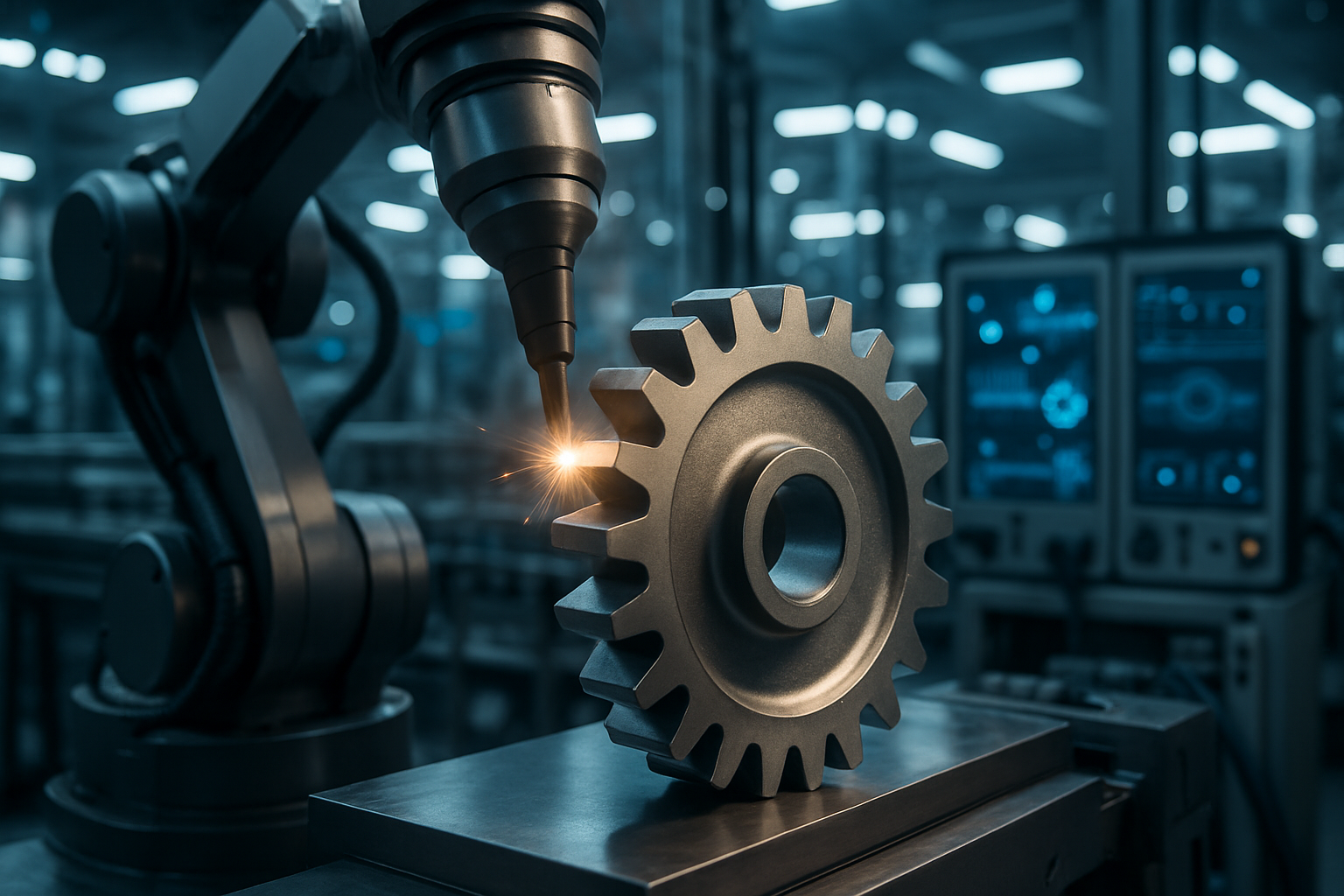Boost Productivity and Profit: The Business Case for CNC Machines
Investing in CNC machines is more than just upgrading equipment—it’s a strategic move to boost productivity and maximize profit. By automating precision tasks, manufacturers can reduce errors, accelerate production, and maintain consistent quality across every project. This efficiency not only lowers operational costs but also enables businesses to take on more complex projects, meet tighter deadlines, and stay competitive in a rapidly evolving market. In today’s manufacturing landscape, CNC technology is no longer a luxury—it’s a necessity for growth and profitability.

How does CNC technology enhance efficiency through automation?
CNC machines operate based on pre-programmed computer instructions, allowing for complex manufacturing processes to be executed with minimal human intervention. This automation leads to significant improvements in efficiency across several areas:
-
Increased production speed: CNC machines can operate continuously, often 24/7, without the need for breaks or shift changes. This results in higher output volumes compared to manual processes.
-
Improved accuracy and consistency: By following precise digital instructions, CNC machines produce parts with exceptionally tight tolerances, reducing errors and waste associated with manual production.
-
Reduced setup time: Once programmed, CNC machines can quickly switch between different tasks or product designs, minimizing downtime between production runs.
-
Multi-tasking capabilities: Many modern CNC machines can perform multiple operations in a single setup, further streamlining the production process and reducing the need for separate machines or workstations.
What cost reductions can businesses achieve while increasing output?
Implementing CNC technology can lead to substantial cost savings for businesses, even as they increase their production capacity:
-
Labor cost reduction: While skilled operators are still needed to program and oversee CNC machines, the overall labor requirements are typically lower than in manual production environments.
-
Material savings: The precision of CNC machining results in less material waste, as parts can be produced with exact specifications and minimal errors.
-
Energy efficiency: Modern CNC machines are designed with energy-saving features, potentially reducing power consumption compared to older, manual equipment.
-
Quality control savings: With consistent, high-quality output, businesses can reduce costs associated with quality control processes and minimize expenses related to defective products or rework.
-
Inventory optimization: CNC machines’ ability to produce parts on-demand can help businesses reduce inventory holding costs and improve cash flow.
How do CNC machines help businesses stay competitive in a modern market?
In today’s fast-paced manufacturing landscape, CNC technology plays a crucial role in maintaining competitiveness:
-
Flexibility and customization: CNC machines can quickly adapt to new product designs or variations, allowing businesses to respond rapidly to changing market demands or customer requirements.
-
Scalability: As production needs grow, businesses can more easily scale up their operations with CNC technology, adding machines or expanding capabilities without proportional increases in labor costs.
-
Innovation enablement: The precision and capabilities of CNC machines allow for the production of complex parts that may be difficult or impossible to create manually, opening up new product development possibilities.
-
Quality assurance: Consistent, high-quality output helps businesses maintain their reputation and meet stringent industry standards, which is particularly important in sectors like aerospace, automotive, and medical device manufacturing.
-
Global competitiveness: By leveraging CNC technology, businesses can achieve production efficiencies that allow them to compete with manufacturers in lower-cost regions, potentially retaining or returning production to domestic markets.
What are the real-world costs and considerations for implementing CNC machines?
When considering the implementation of CNC technology, businesses must carefully evaluate the associated costs and potential return on investment:
-
Initial investment: CNC machines represent a significant upfront cost, with prices varying widely based on size, capabilities, and complexity.
-
Training and personnel: Skilled operators and programmers are essential for effective CNC implementation, requiring investment in training or hiring specialized staff.
-
Maintenance and upgrades: Regular maintenance is crucial for optimal performance, and periodic software or hardware upgrades may be necessary to stay current with technological advancements.
-
Facility modifications: Some CNC machines may require specific environmental conditions or facility adaptations, such as reinforced flooring or enhanced ventilation systems.
| CNC Machine Type | Typical Price Range | Key Features |
|---|---|---|
| Desktop CNC Router | $1,000 - $5,000 | Compact size, suitable for small-scale production or prototyping |
| Vertical Machining Center | $30,000 - $150,000 | Versatile, ideal for milling, drilling, and cutting operations |
| CNC Lathe | $25,000 - $200,000 | Specializes in creating cylindrical parts with high precision |
| 5-Axis CNC Machine | $100,000 - $500,000+ | Advanced capabilities for complex geometries and multi-sided machining |
Prices, rates, or cost estimates mentioned in this article are based on the latest available information but may change over time. Independent research is advised before making financial decisions.
While the initial investment in CNC technology can be substantial, many businesses find that the long-term benefits in terms of increased productivity, reduced labor costs, and improved quality justify the expense. The specific return on investment will depend on factors such as production volume, complexity of parts, and labor market conditions.
In conclusion, CNC machines offer a compelling business case for companies looking to enhance their manufacturing capabilities. By automating processes, reducing costs, and enabling greater flexibility and precision, CNC technology can significantly boost productivity and profitability. As the manufacturing landscape continues to evolve, businesses that strategically implement CNC solutions position themselves to remain competitive and adapt to future challenges in the global market.




